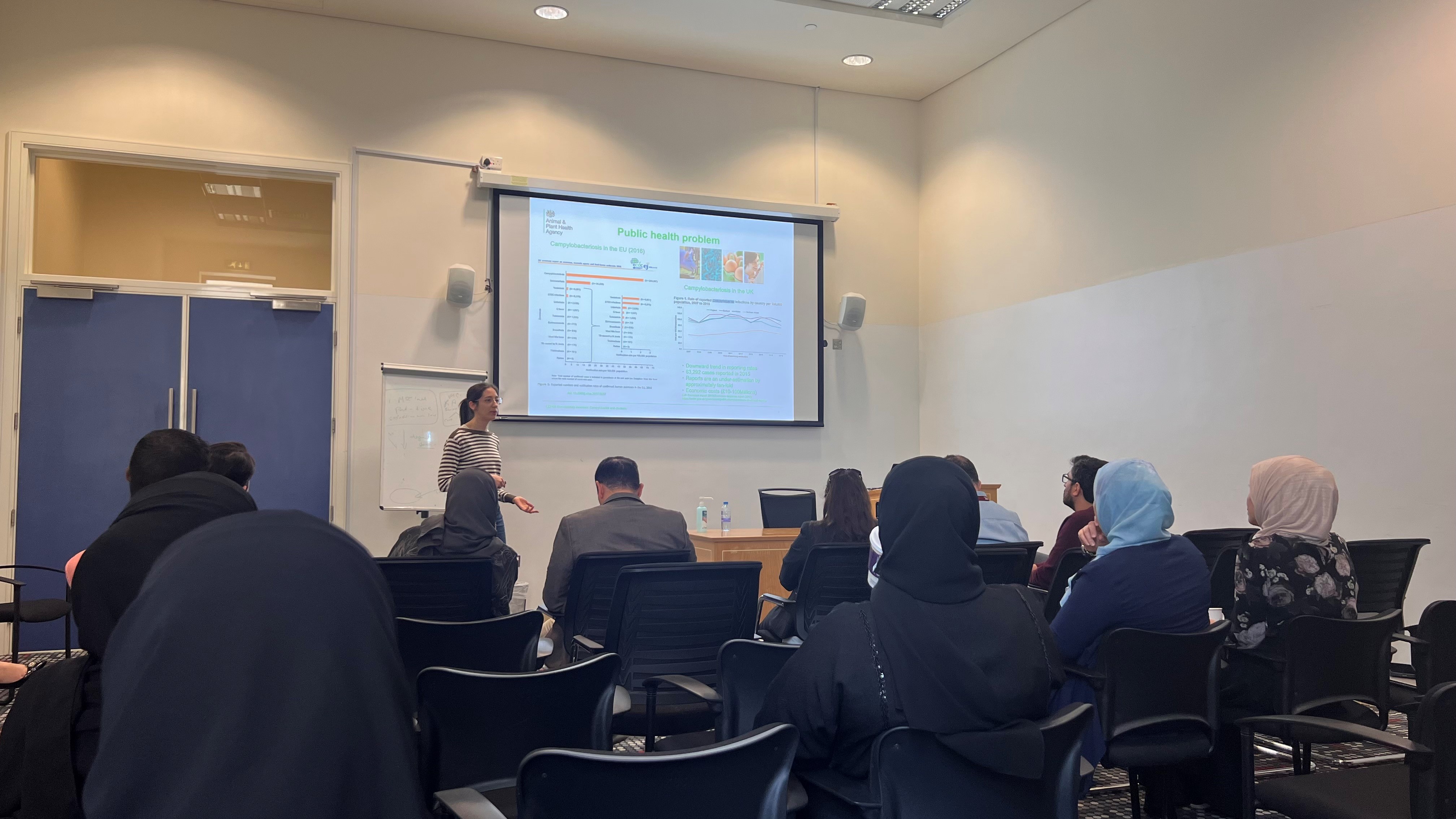
Dr. Sandra Laborda Anadon
14 March 2023
BRC Orgnized a Seminar with Dr. Sandra from the Bacteriology, Animal and Plant Health Agency, UK. She gave a talk about Campylobacter is a foodborne pathogen causing gastroenteritis in developed countries, including the UK, with a significant cost to public health and the economy. The majority of human Campylobacter infections are caused by Campylobacter jejuni and Campylobacter coli, with C. jejuni responsible for the majority of cases in the UK. Exposure to Campylobacter can be via ingestion of contaminated foods and poultry meat is a potential source of contamination in kitchens. Most Campylobacter infections are self-limiting, but severe cases require antibiotic treatment. Campylobacter can develop resistance to a wide spectrum of antimicrobial agents, and the emergence of resistance to medically important antibiotics such as ciprofloxacin and erythromycin are areas of concern. The potential public health risks of zoonosis and AMR in poultry production can be mitigated by control measures along the meat supply chain, which includes farms, slaughterhouses and kitchens. The Animal and Plant Health Agency (APHA) along with other institutions including the Food Standards Agency (FSA) and the UK Health Security Agency (UKHSA) collaborate to provide research and surveillance on Campylobacter to inform risk assessments and to inform on controls to manage risk. This presentation will give an overview of APHA research and surveillance on Campylobacter contamination and antimicrobial resistance found in poultry in the UK.